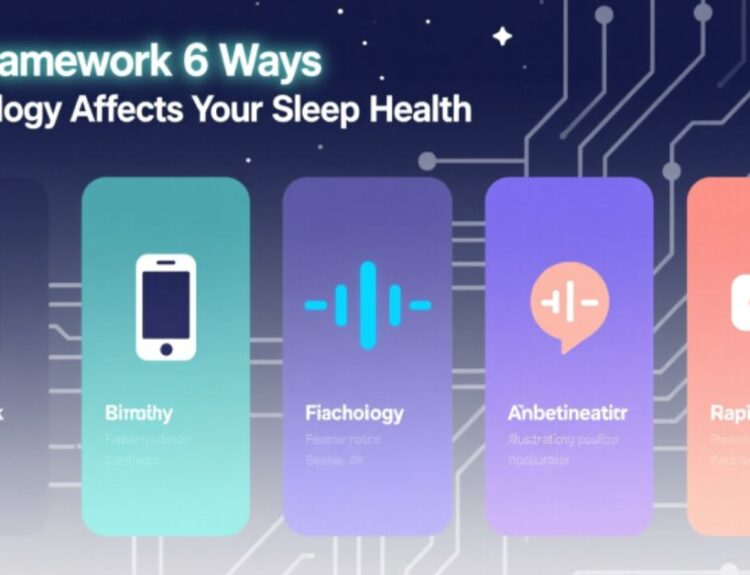The manner that doctors diagnose, treat, and oversee patient care has been completely transformed by healthcare technology. Rapid technological breakthroughs are bringing about a period of transformation in the healthcare industry that is improving patient outcomes and increasing overall efficiency. Healthcare technology, from AI-driven diagnostics to electronic health records (EHR), is influencing medicine in ways that were not previously thought possible.
This article contrasts the major advancements influencing the future of healthcare, examines the importance of healthcare technology, and emphasises its most recent trends. It will also go over the problems and possible fixes that the industry is facing as it develops further.
The Growing Importance of Healthcare Technology
Significant progress has been made in healthcare technology during the past few decades. Numerous aspects of healthcare have been profoundly impacted by these breakthroughs, including:
• Better Diagnosis and Treatment: Thanks to AI and machine learning, medical professionals can now help patients recover more quickly, receive more individualised treatment plans, and receive more accurate diagnoses.
• Improved Patient Care: Patients can receive care from the comfort of their homes thanks to wearable health technology, telemedicine, and remote monitoring devices, which increases convenience and lowers readmissions to hospitals.
• Cost Efficiency: By lowering the operational expenses of healthcare services, digital tools and automated systems make healthcare more accessible and cheap.
• Data Management and Analytics: Sophisticated data analytics assist medical professionals in securely managing patient data, making well-informed selections, and guaranteeing that therapies adhere to the most recent clinical recommendations.
Key Trends in Healthcare Technology
Artificial Intelligence (AI) in Healthcare
The rapid and accurate analysis of large amounts of data by AI is revolutionising medication discovery, therapy suggestions, and diagnostics. Clinicians can make better decisions by using AI-driven algorithms to identify trends and abnormalities that human eyes might overlook. AI tools are currently being utilised, for instance, to help with individualised treatment planning, forecast patient outcomes, and interpret radiology images.
Telemedicine and Virtual Care
Wearable health technology is enabling people to take charge of their health, from smartwatches that monitor heart rate and sleep patterns to diabetic glucose monitors. These gadgets gather data in real time, which can be shared with medical professionals to enable proactive treatment and early intervention as needed.
Blockchain for Healthcare Data Security
Data security is becoming more and more important as healthcare systems become more digital. Blockchain technology provides a transparent and safe method for exchanging and storing patient data. Its decentralised structure lowers the possibility of data breaches and guarantees that only authorised personnel can access patient data.
Robotics and Automation
In both surgery and rehabilitation, robotics technology is becoming increasingly important. Patients recover more quickly from robotic-assisted surgery because it enables more accurate and minimally invasive operations. Additionally, administrative duties are being automated to increase efficiency and lessen the workload for medical personnel.
Benefits of Healthcare Technology
The following are some of the most important benefits that healthcare technology gives to patients and healthcare providers:
• Better Access to Care: Patients in underserved or rural areas can now receive healthcare services they were previously unable to obtain thanks to telemedicine and remote monitoring systems. By removing regional restrictions, this technology guarantees a more egalitarian distribution of healthcare.
• Improved Health Outcomes: AI-driven technologies and sophisticated data analytics assist medical professionals in spotting any health problems early on, which results in more efficient treatments and improved patient outcomes.
• Enhanced Efficiency: By automating repetitive processes like data entry, billing, and scheduling, healthcare personnel may concentrate on patient care rather than administrative duties. As a result, healthcare institutions are more efficient overall.
• Cost Savings: Healthcare technology can contribute to cut healthcare costs by enhancing preventative care and decreasing hospital readmissions. Remote patient monitoring, for instance, can eliminate the need for costly.
Challenges in Healthcare Technology Adoption
Although there are many advantages to healthcare technology, there are also issues that must be resolved for implementation to be successful:
Data Privacy and Security Concerns
The likelihood of cyberattacks and data breaches rises as healthcare organisations use more digital solutions. For healthcare professionals, protecting patient data while adhering to laws like the Health Insurance Portability and Accountability Act is a top priority.
High Initial Costs
For certain healthcare organisations, especially smaller practices, the expense of implementing cutting-edge healthcare technology, such as robotics, AI tools, and telemedicine platforms, may be unaffordable. These expenses may cover maintenance, training, hardware, and software.
Integration with Existing Systems
Numerous healthcare institutions continue to operate with antiquated systems that are incompatible with modern technology. It can be difficult and time-consuming to integrate new healthcare technologies with legacy systems.
Resistance to Change
Because of suspicion of automated systems, worries about the learning curve, or fear of losing their jobs, some healthcare workers may be hesitant to embrace new technologies. It will need appropriate training and teaching regarding the advantages of these technologies to overcome this resistance.
Regulatory Hurdles
Regulations must be modified as healthcare technology develops further to guarantee the security, efficacy, and safety of emerging technologies. In the healthcare sector, finding the ideal balance between innovation and regulation is a constant issue.
Comparison Chart: Top Healthcare Technologies
| Healthcare Technology | Benefits | Challenges | Examples |
| Artificial Intelligence (AI) | Faster, more accurate diagnosis, personalized treatment | High cost, data privacy concerns | IBM Watson Health, Google DeepMind, PathAI |
| Telemedicine | Improved access to care, convenience | Limited access to technology, connectivity issues | Teladoc, Amwell, Doctor on Demand |
| Wearable Health Devices | Continuous health monitoring, real-time data sharing | Data overload, lack of standardization | Apple Watch, Fitbit, Dexcom |
| Blockchain | Enhanced data security, transparent data sharing | Lack of widespread adoption, complexity | Medicalchain, BurstIQ |
| Robotics | Minimally invasive procedures, improved precision | Expensive, training required | Da Vinci Surgical System, ReWalk Robotics |
The Future of Healthcare Technology
Healthcare technology appears to have a bright future. More advancements in patient care are anticipated as a result of emerging technologies such improved genomics, 3D printing medical equipment, and quantum computing.
• Quantum Computing: With its ability to process enormous volumes of data in a matter of seconds, quantum computing has the potential to transform drug development by making it quicker and more effective.
• 3D printing: This technology may soon be utilised to produce organ transplants and customised prosthetics, opening the door to individualised medical care.
• Advanced Genomics: Personalised medicine has already started to use genomic technology. Treatments customised to a person’s genetic composition may become possible as these technologies develop.
Conclusion
Unquestionably, healthcare technology is altering how we provide healthcare. Wearable technology, blockchain, telemedicine, and artificial intelligence are all advancing patient care, increasing healthcare efficiency, and cutting costs. To guarantee broad acceptance, however, issues like data security, pricing, and integration must be resolved, just like with any new technology.
With ongoing developments anticipated that will surely continue to improve the healthcare sector, the future of healthcare technology is bright. Unlocking the full potential of healthcare technology will require embracing these changes as well as making calculated investments in infrastructure and training.







